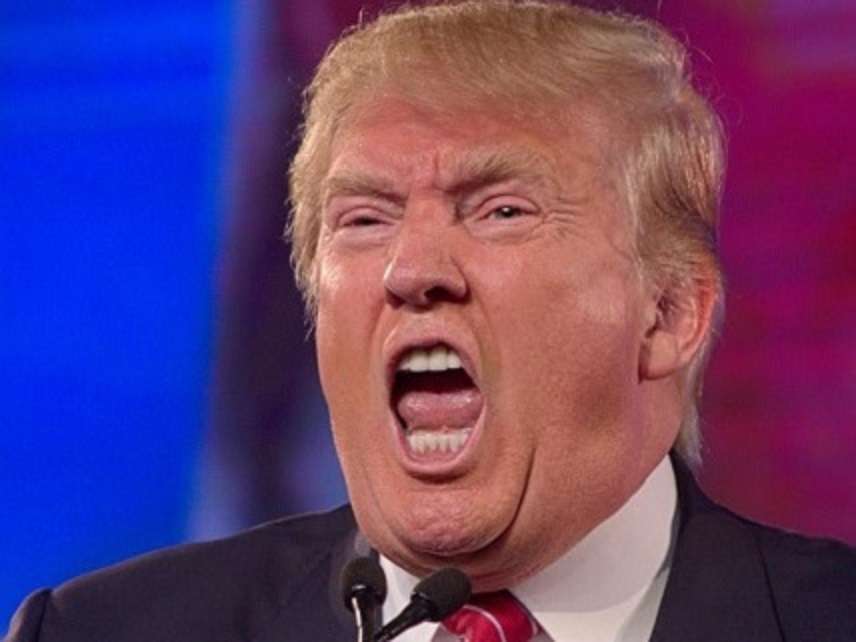Trump and the End of the Imperial Presidency
If you look past the shouting and the narcissism, there are clear signs that Trump doesn't have as much power as we all want or fear.

As the nation gets ready for the constitutionally mandated State of the Union Address tonight, it's worth considering whether Donald Trump represents a continuation of the "imperial presidency" or its denouement.
Associated with figures as varied as Andrew Jackson, Abraham Lincoln, Franklin Roosevelt, Lyndon Johnson, Richard Nixon, George W. Bush, and Barack Obama, the imperial presidency refers to the concept that the nation's chief executive has an enormous amount of power that he wields with little interest in constitutional or traditional limits on the office. Devoted to limiting and dispersing government power, libertarians are traditionally opposed to an imperial presidency, while conservatives and liberals will often support it depending on who is in power. Under Barack Obama, for instance, liberals and Democrats mostly cheered and conservatives and Republicans jeered when the president used his phone and pen to pass any number of executive orders. A year ago, those positions flipped.
At first glance, Trump seems to be a clear continuation of the imperial presidency. Not only has he been quick to issue executive orders and actions when Congress is slow to move, his personal style is that of a, well, emperor. He acts imperiously and seems to have little but contempt for the niceties of the law or diplomatic protocol. His favorite word is "I," followed by "me." And yet, when you look at what Trump has actually accomplished in the past year, very little of it suggests a truly imperial presidency. Much of his actions have to reverse executive actions and edicts left over from Obama's administrative state. Try as he might, his attempts to ban residents of Muslim-majority countries have been mostly stymied by the courts. Where Andrew Jackson told the Supreme Court to go screw, Trump instead sticks his lower lip out like a mix of a sullen toddler and latter-day Mussolini. As Matt Welch has noted, Trump's successful actions have often involved devolving power to the legislative branch.
The 15 regulatory nullifications this year via the Congressional Review Act (14 more than all previous presidents combined) are definitionally power-transfers from the executive to legislative. And certainly, the sharp decreases in the enactment, proposal, and even page-count of regulations amount to the administration declining to exercise as much power as its predecessors.
When it comes to an issue as highly charged as Deferred Action for Childhood Arrivals (DACA), Trump actually turned the issue back to Congress, giving the Republican majority ample time to do nothing. That's not exactly the action of a would-be Caesar, is it? And absent a legislative fix, it's pretty clear the courts will keep hemming him in.
None of this is to suggest Trump accomplished nothing (good or bad) in his first year in office. But he's done a lot less than he claimed he would, and he's faced real push-back. Like many blustering bullies, his bark is worse than his bite. And his power is mostly in his head.


Show Comments (16)